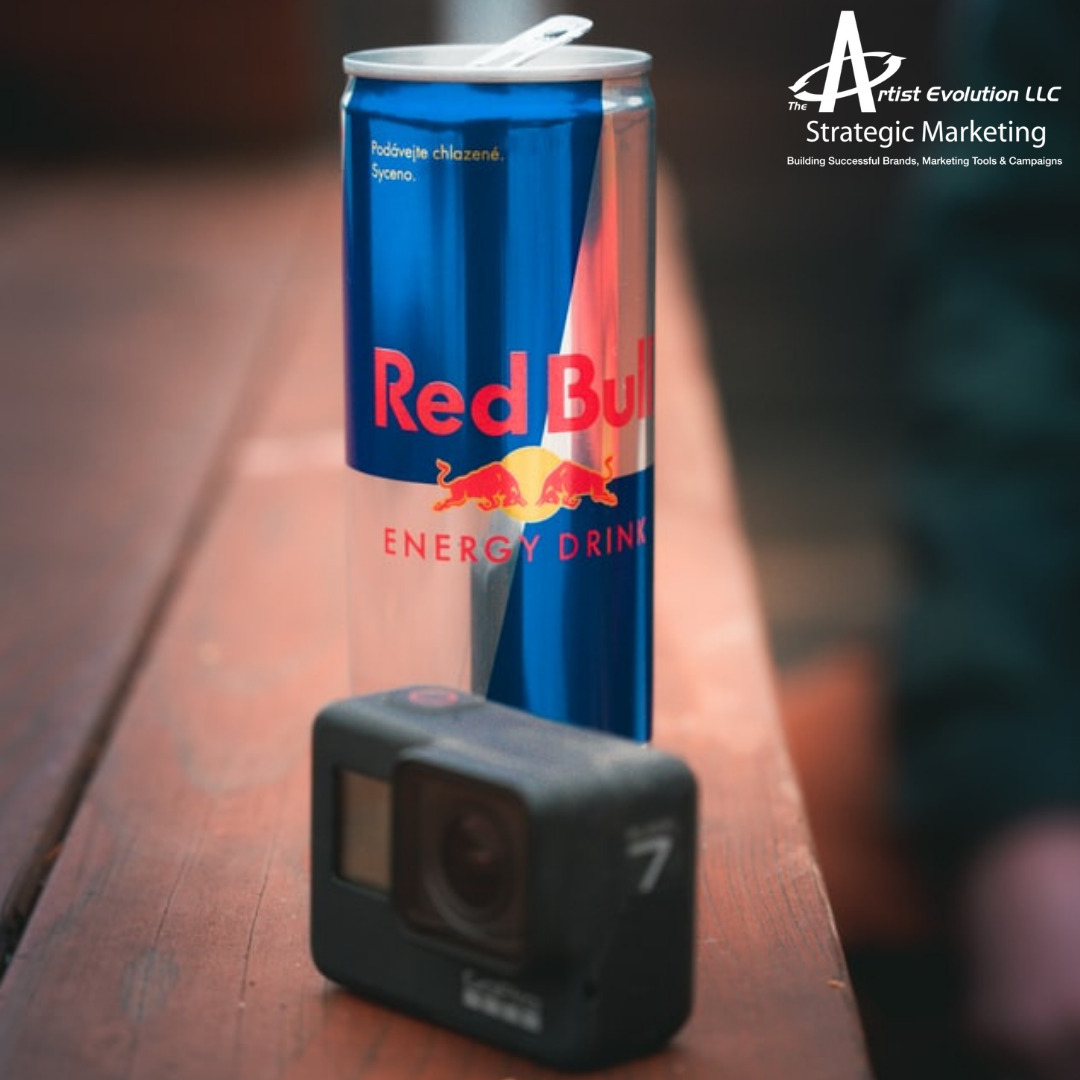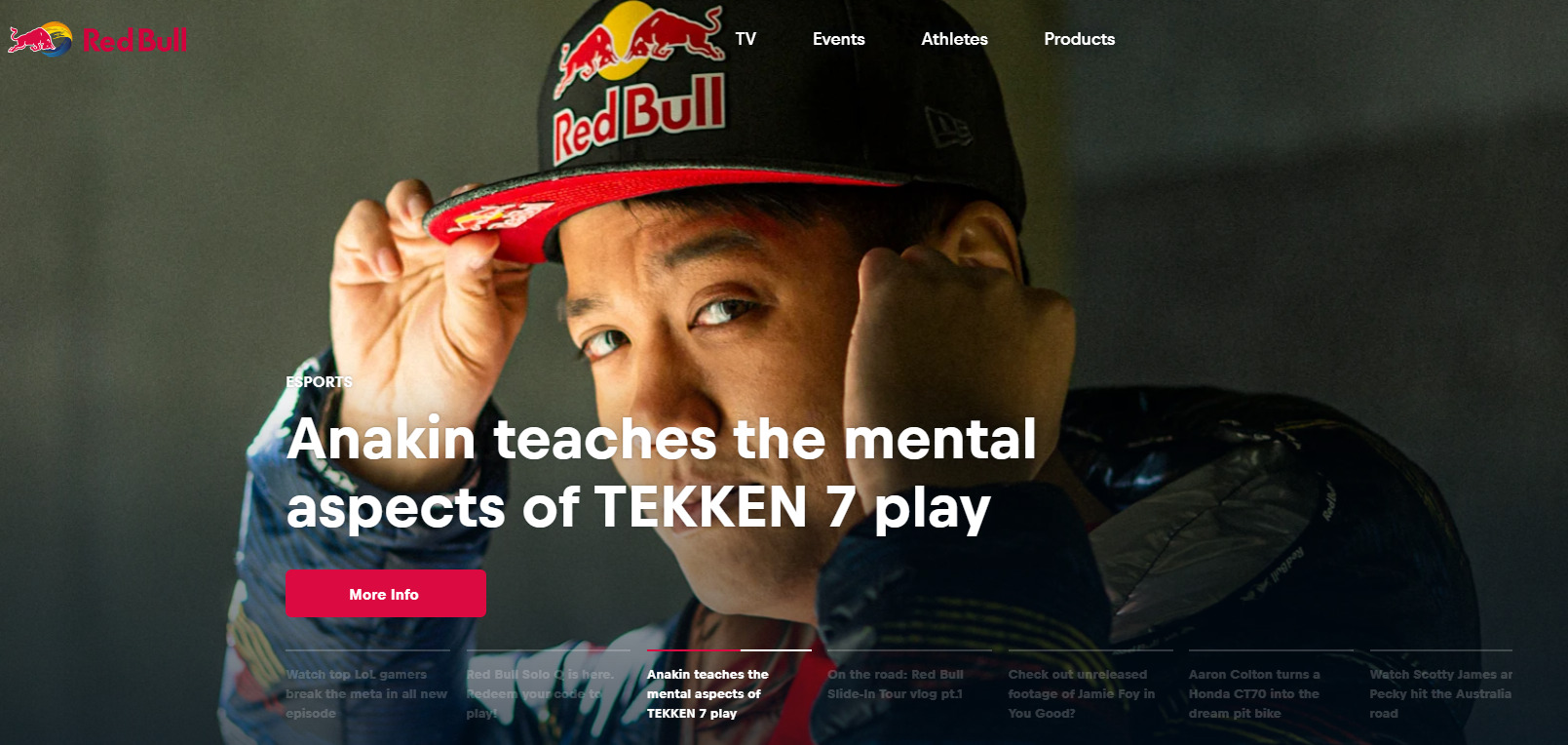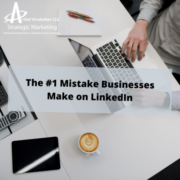A Marketing Lesson from Red Bull

Red Bull has solidified themselves as masters of marketing. We’re going to look at how they did it so you can implement their strategies into your own marketing.
Coca-Cola is a soda company.
Gatorade is a sports drink company.
Red Bull is a—lifestyle?
Red Bull is a special company because they have outgrown the label of “energy drink.” Sure, at their core Red Bull sells energy drinks. But everything they do in addition to selling energy drinks is what sets them apart from their competition.
On average, B2C companies spend around ten percent of their annual revenue on marketing. Because Red Bull is a privately held company, there are no clear statistics on their marketing budget. However, estimates suggest that the energy drink giant spends anywhere between thirty to forty percent of their annual revenue on marketing—which is significantly higher than the average B2C marketing allocation.
Red Bull’s all-in strategy on marketing has resulted in a formidable market presence within the energy drink sector and beyond. But Red Bull has risen to the top not simply because they spend more on marketing than their competitors—after all, higher budgets do not necessarily equate to more sales—but because of the way in which they spend their marketing budget.
Red Bull does NOT act like an ordinary B2C company
Red Bull strays from the conventional B2C marketing strategy of heavy product advertisement and instead chooses to focus on content marketing. Seems counterintuitive, right? Energy drinks do not exactly lend themselves well to content marketing, but Red Bull found a way to make it work—and work really well.
Ultimately, Red Bull’s content marketing strategy takes an indirect approach to customer acquisition. Instead of marketing directly to their target customers (generally young, non-conformist thrill seekers), they go after the things their target audience cares most about.
If you don’t believe us, take a look at Red Bull’s website homepage below, and look carefully at how they prioritize their products:

TV, Events, Athletes… Products. Not only do they list their product section last, which is significant in and of itself, they don’t display a single picture of their product anywhere on the homepage. Instead, they focus on people, events, stories… all things that have become synonymous with their brand.
Consider skateboarders: they have no inherent reason to care about energy drinks; they care about skateboarding. But if an energy drink somehow became synonymous with skateboarding, then skateboarders would suddenly start caring about energy drinks.
That is exactly what Red Bull has achieved, and not just in skateboarding but in unconventional extreme sports and activities of all kinds.
The “Desirable by Association” Approach.
Think of any unorthodox yet popular sport and chances are Red Bull has a strong presence in it—not simply because they promote their drinks at events and venues but because they sponsor these events and the people who make them special. These athlete sponsorships play an especially important role in Red Bull’s marketing strategy.
Take bike racing, for example, one of the many non-conformist sports that Red Bull has embraced. Red Bull sponsors a select number of accomplished bike racers each year by giving them financial compensation. In return, the cyclists wear branded “Red Bull helmets.”
The result is a handful of extremely fast bike racers who all share one thing in common: they all wear Red Bull helmets. This positive association is a crucial component of Red Bull’s marketing success. Red Bull attaches their name and logo (i.e., their brand) to things and people that their target audience cares about.
Consequently, this positive (and perhaps subconscious) association between their brand and their consumers’ passions eventually lead to product purchases and continued brand loyalty. Does this unconventional strategy pay off? Red Bull’s continued dominance in the energy drink sector suggests so.
Of course, most businesses are not in a position to bet so heavily on indirect marketing like Red Bull does. But there is still a valuable lesson to learn from Red Bull’s marketing strategy, and it’s something that any business can implement.
Red Bull Places Their Customers First
This may sound cliché, but many businesses don’t do it, and it is a crucial component of successful advertising.
When we say that Red Bull places customers first, we mean they focus first and foremost on their customers’ wants and needs. They don’t directly promote their product often, but when they do, they always promote it in a way that entices their target audience.
The clearest example of this can be seen in their slogan, “Red Bull gives you wings.” Red Bull gives you wings. They could have easily made their slogan, “Red Bull, the premier energy drink,” but they chose not to (and for good reason).
Buying the premier energy drink does not appeal to any innate human desire, but buying wings—i.e., being “lifted up” and empowered—does. Everyone could use a lift here and there, and Red Bull satisfies that innate need (at least in theory) with a sugary energy drink. It’s amazing what good marketing can achieve, huh?
The Bottom Line: Give Your Customers Wings
The biggest lesson to be learned from Red Bull’s unconventional marketing strategy is not that you should devote thirty to forty percent of your annual revenue towards marketing (though maybe you should), nor is it that you should start sponsoring athletes in professional sports. The lesson to take away and apply to your own marketing is this:
If you can figure out what your target customers are passionate about and attach your brand to it, you will stand out from competitors who only focus on their products. The secret to successful marketing is to focus not only on your product but on the people who you want to purchase your product.
Red Bull is not in the business of selling energy drinks. They’re in the business of giving people wings. How will you give your customers wings?
Contributed by Bryce Ward
Need help giving your customers wings? The Artist Evolution can help. Contact us today to learn how.







